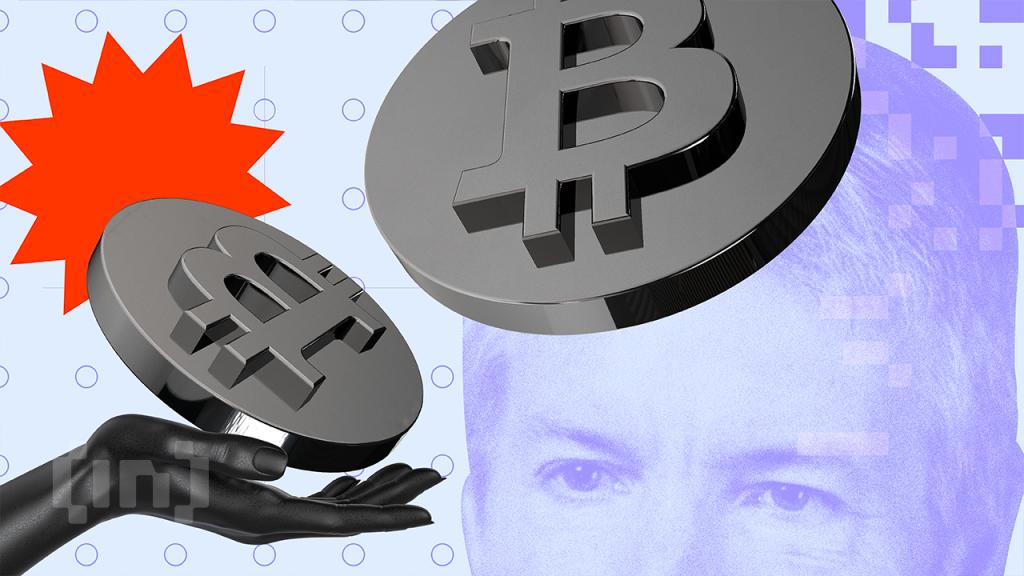South Korea’s Pension Fund Buys $34M in MicroStrategy

South Korea’s National Pension Service (NPS) recently purchased $34 million worth of MicroStrategy shares, highlighting increased institutional confidence in Bitcoin (BTC) via strategic investments.
MicroStrategy’s heavy Bitcoin focus continues to boost confidence in the company’s long-term prospects and the value of its crypto holdings.
South Korea’s NPS Buys MicroStrategy Shares
An official filing with the US Securities and Exchange Commission (SEC) confirmed the development. Notably, South Korea’s NPS, the second-largest public pension fund in the world, is backing Bitcoin through its MicroStrategy investment. This move underscores the increasing confidence large institutions have in Bitcoin by gaining indirect exposure via MicroStrategy.
MicroStrategy’s stock (MSTR) has effectively become a proxy for Bitcoin due to its aggressive BTC investment strategy. This unintended perception draws investors seeking leveraged exposure to Bitcoin without directly holding the cryptocurrency.
While South Korea’s National Pension Fund gains indirect Bitcoin exposure through proxies, others are capitalizing on the recently approved spot Bitcoin ETFs. Notable examples include New England’s Retirement Planning Company, which invested $249,429 in Grayscale’s Bitcoin Trust (GBTC), acquiring 4,685 shares, as disclosed in its latest FORM 13F filing with the SEC.
Additionally, the State of Wisconsin purchased $99 million worth of BlackRock’s Bitcoin ETFs, iShares Bitcoin Trust (IBIT), while the State of Michigan Retirement System invested $66 million in the ARK 21Shares ARKB spot Bitcoin ETF. Jersey City Mayor Steven Fulop also announced similar investment plans.
Beyond pension funds, Wall Street giants like Morgan Stanley, Goldman Sachs, and DRW Capital have disclosed positions in Bitcoin ETFs. These developments signal growing institutional confidence in Bitcoin and its increasing integration into mainstream finance.
Read more: How To Trade a Bitcoin ETF: A Step-by-Step Approach
This growing allure of Bitcoin among traditional finance (TradFi) players was instigated by the approval and launch of spot Bitcoin ETFs in January, which delivered BTC to Wall Street. South Korea Pension Fund’s move, therefore, aligns with a broader trend where TradFi adopts Bitcoin within investment strategies.
MicroStrategy’s Bitcoin Investment Strategy
The Virginia-based firm MicroStrategy has earned a reputation as a leading Bitcoin maximalist, driven by its CEO, Michael Saylor, a well-known BTC advocate and investor.
“Bitcoin is a capital investment you can hold for decades that a corporation, competitor, counterparty, or country can’t take away from you. It will create generational wealth for your family, corporation, or country,” Saylor shared recently.
MicroStrategy’s Bitcoin investment strategy continues to fortify its place in the crypto arena, turning heads with every development. As BeInCrypto reported, the US SEC approved ETF issuer Defiance’s MSTX, bringing forth MicroStrategy’s first-ever leveraged single-stock ETF.
The firm continues expanding its Bitcoin holdings despite market challenges, maintaining its position as the public company with the largest BTC reserve. For example, in Q2 2024, MicroStrategy acquired 12,222 Bitcoin, bringing its total holdings to 226,500 BTC, even after posting a quarterly loss. Earlier this month, the company announced plans to sell up to $2 billion in shares for further Bitcoin investments and other corporate purposes.
Read more: Who Owns the Most Bitcoin in 2024?
Despite its bold Bitcoin stance and strategic moves, MicroStrategy is not immune to market downturns. For instance, its Bitcoin portfolio took a hit in July when the US government announced plans to sell $2 billion worth of seized BTC, leading to a decline in Bitcoin’s value and impacting the firm’s holdings.
Nevertheless, MicroStrategy’s Bitcoin stance and strategic investment acumen do not absolve it from taking blows whenever the market tanks. For instance, its Bitcoin portfolio took a hit in July when the US government announced a $2 billion sell-off from seized BTC holdings. The decline was further fueled by the Federal Reserve’s decision to pause interest rates on July 31 and a weaker-than-expected US jobs report on August 2.
Disclaimer
In adherence to the Trust Project guidelines, BeInCrypto is committed to unbiased, transparent reporting. This news article aims to provide accurate, timely information. However, readers are advised to verify facts independently and consult with a professional before making any decisions based on this content. Please note that our Terms and Conditions, Privacy Policy, and Disclaimers have been updated.









